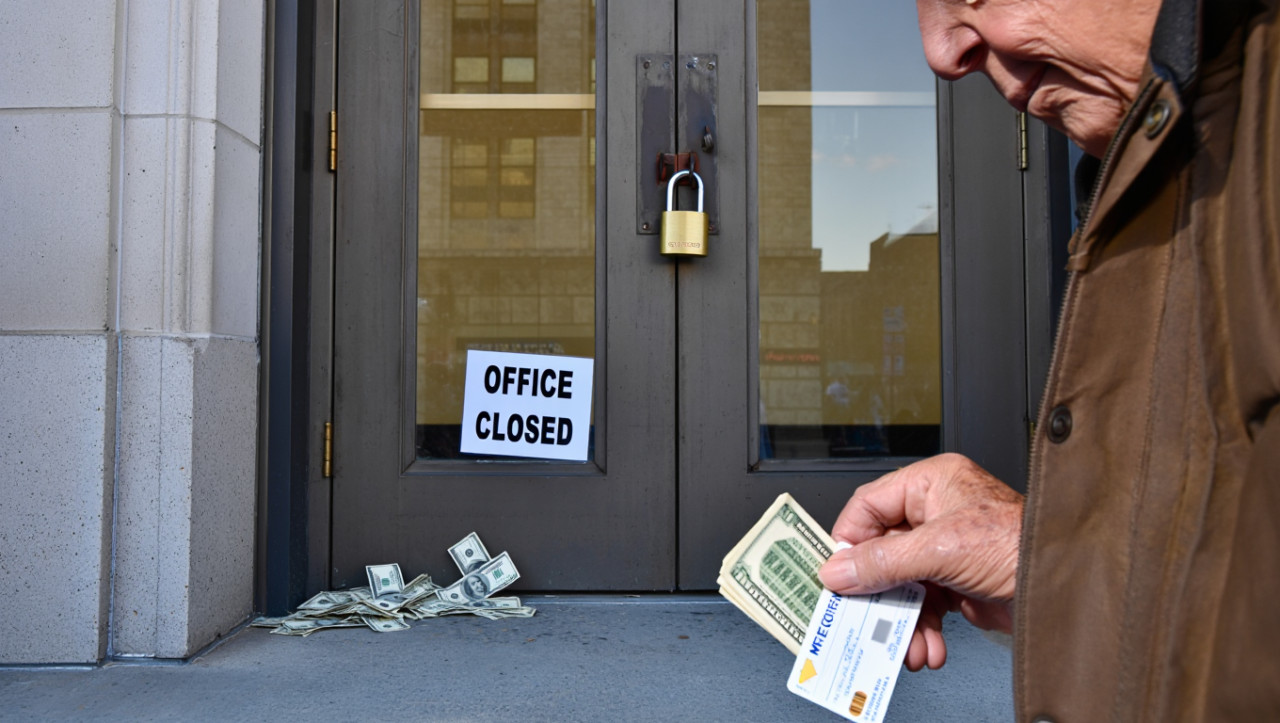Social Security Alerts, News & Updates
Disability Groups Sue Over Social Security Service Cuts

Disability Groups Fight Back Against Social Security’s “Efficiency” Drive
Well, this was inevitable. Disability advocates just slapped the Social Security Administration with a federal lawsuit. Apparently, making it harder for disabled people to get their benefits isn’t the brilliant efficiency move someone thought it was. Who could have seen that coming?
The lawsuit, filed Wednesday in D.C. federal court, takes aim at both the SSA and the Department of Government Efficiency (DOGE). Yes, DOGE. Because nothing says “serious government reform” like naming your department after an internet meme.
Here’s the beautiful irony: they’re cutting services in the name of efficiency, but now they’ll spend millions defending a lawsuit. Taxpayer money well spent, folks.
The “Improvements” That Started This Mess
Let me paint you a picture of these brilliant Social Security changes. Picture someone in a wheelchair trying to access their disability benefits. Now imagine telling them the local office is closed, the phone lines are cut, and they need to travel 50 miles for mandatory in-person verification. Efficient, right?
The masterminds behind these cuts apparently forgot that people on Social Security disability often have, you know, disabilities. Shocking revelation, I’m sure. These aren’t folks who can just hop in their cars and cruise to the nearest office three towns over.
But hey, at least we’re saving money. Well, until you factor in the lawsuit costs, the inevitable settlements, and the human suffering. But those don’t show up on spreadsheets, so who’s counting?
The Legal Dream Team Steps In
Justice in Aging and Brown, Goldstein & Levy LLP are leading the charge. They’re representing some heavy hitters in the disability world:
The National Federation of the Blind jumped in because, surprisingly, blind people have trouble navigating closed offices and online-only systems. The American Association of People with Disabilities joined because someone needs to point out the obvious. And Deaf Equality signed on because phone-only services work great for deaf people, right?
I’ve covered Social Security issues for years, and this might be the most predictable lawsuit I’ve ever seen. You cut services for the most vulnerable people in society, and they fight back. It’s almost like cause and effect still exists.
The Real Cost of “Efficiency”
Here’s what drives me up the wall about this whole situation. The people making these cuts probably have great health insurance, reliable transportation, and can take time off work whenever they need. They’ve never had to navigate the Social Security system while dealing with chronic pain, visual impairment, or mobility issues.
My aunt has MS. Last month, she spent four hours on hold trying to fix an issue with her Social Security benefits. Four hours. When they finally answered, they told her she needed to come in person. The nearest office? Forty-five minutes away. She doesn’t drive anymore.
That’s the human face of efficiency. That’s what these advocates are fighting against.
What This Lawsuit Actually Means
Let’s be real here. This lawsuit isn’t just about keeping offices open or maintaining phone lines. It’s about whether we’re going to pretend that everyone has the same abilities and resources.
The Americans with Disabilities Act exists for a reason. The whole point is that government services need to be accessible to everyone, not just the people who can easily adapt to whatever new system some consultant dreams up.
The lawsuit argues these cuts violate federal law. And honestly? They’ve got a point. You can’t just decide that closing Social Security offices and forcing everyone online is fine when millions of beneficiaries have conditions that make that impossible.
The Efficiency Paradox Nobody Talks About
Here’s the joke nobody in government seems to get: making services less accessible doesn’t save money. It just shifts costs around.
When my aunt can’t fix her benefit issue, she might miss a payment. Then she can’t afford her medications. Then she ends up in the emergency room. Guess who pays for that? We all do, through higher insurance premiums and hospital costs.
But sure, let’s celebrate closing a few offices and cutting some phone lines. Mission accomplished, efficiency experts.
What Happens Next (Spoiler: More Bureaucracy)
This lawsuit will drag on for months, maybe years. Lawyers will bill thousands of hours. Government attorneys will defend the indefensible. Eventually, there’ll probably be a settlement that costs more than just keeping the services running would have.
Meanwhile, people who need Social Security disability benefits will keep struggling. They’ll miss appointments they can’t get to. They’ll fail to navigate online systems not designed for their needs. Some will give up entirely.
The advocates filing this lawsuit know the game. They’ve been here before. Every few years, someone decides to “modernize” or “streamline” Social Security services without thinking about who actually uses them. Then come the lawsuits, the bad press, the quiet reversals.
It’s like watching a very expensive, very cruel version of Groundhog Day.
The Bottom Line
Look, I get it. Government waste is real. Efficiency matters. Nobody wants their tax dollars wasted on redundant services or bloated bureaucracies.
But there’s smart efficiency and then there’s whatever this is. Smart efficiency would mean making services work better for everyone. This? This is just making life harder for people who already have it pretty tough.
The disability groups suing over these cuts aren’t asking for special treatment. They’re asking for the basic accessibility that federal law already guarantees. The fact that they need a lawsuit to get it tells you everything about how well thought out these “reforms” really were.
So here we go again. Another round of litigation, another pile of taxpayer money spent on lawyers, another year of disabled Americans struggling to access benefits they’ve earned. But hey, at least someone got to check the “improved efficiency” box on their performance review.
Efficiency. You keep using that word. I do not think it means what you think it means.